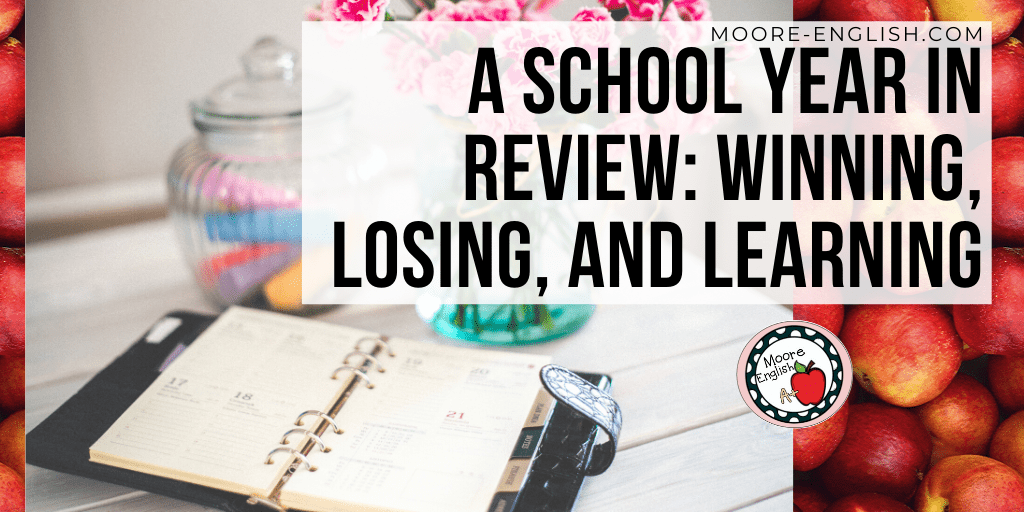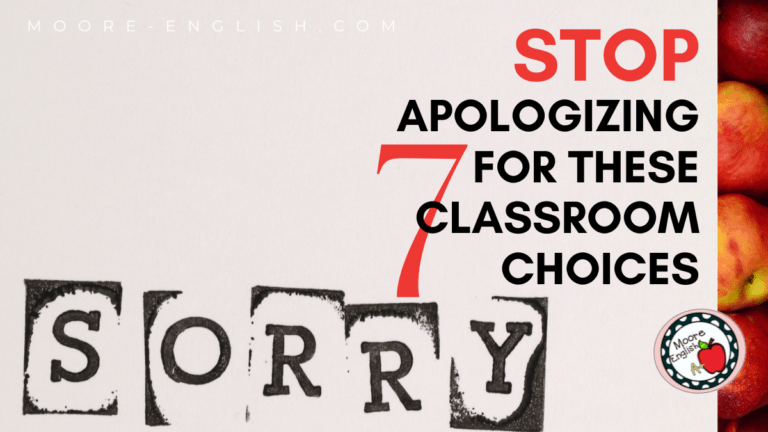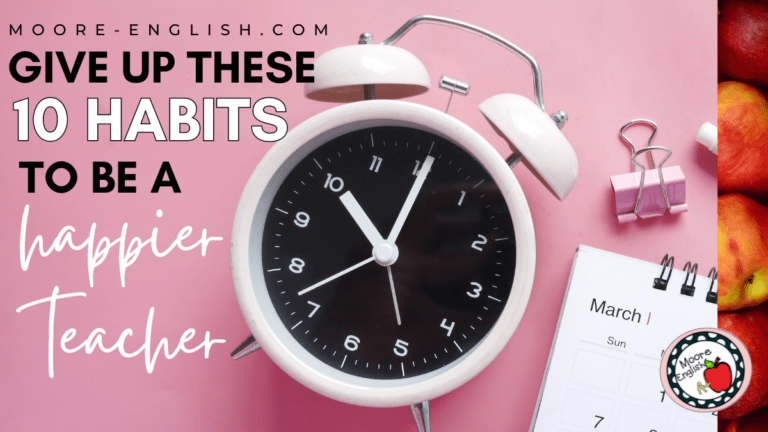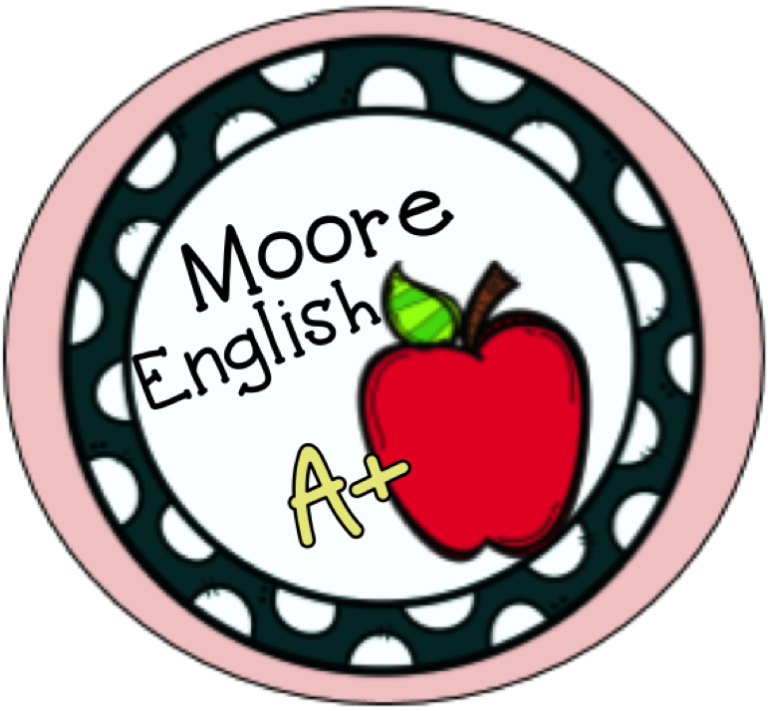On the first day of summer my first year of teaching, I woke up at my normal time and called my mom because… I was bored. After a year of going nonstop, I had no idea how to react to the seemingly sudden conclusion.
I had no idea how to value summer break. Or any break, really.
In the years since, summer break has become a time for reflection. It provides the time and the distance to gain meaningful perspective, and I’ve come to value the opportunity to look back on the year and consider what worked, what didn’t work, and what I’ve learned.

This post this post may contain affiliate links. Please read the Terms of Use.
Winning
I started teaching World Literature this year, which was a new prep for me. The previous teacher had written the curriculum with a lot of flexibility (no standardized state test for this course), and I took advantage of that opportunity and built in protected silent reading time 2-3 times a week. Check out other ideas from World Lit here.
At the end of the semester, we did a class “Book Fair” where every student presented their book, a book trailer, and a pamphlet about their book. Students loved the voice and choice created by SSR, and when I took the time to sit and read with them, I had almost no classroom management problems. The experience was so positive that I’m looking for a way to add this element to my junior class. Do you use SSR in your classroom? What does it look like for you? How do you make it successful?
Not Winning
In the past, my students have lived for Seminar days, and the conversation rarely lagged or got too far off topic. So I was surprised when one of my groups did not respond well to Socratic Seminar this year.
However, this proved to be an opportunity to try out different methods of discussion, including small groups, switching/overlapping groups, snowball discussions, and silent discussions. While I continue to value the Socratic Seminar, this turned out to be an opportunity to try alternative strategies, which, in the end, made me a better teacher.
Learning
In terms of interacting with students, my biggest take away from the year was not instructional or strategy-based; it’s not assessment related; data driven; or quantifiable. Instead, this year reminded me that students remember and reflect. They may not always remember content, but they always remember how you treated them. They remember the teachers who asked about the football game, who offered to stay after school, who listened, adapted, and practiced patience.
Furthermore, students reflect you. When I am excited about acting out the play in class, my students get excited. But when I’m anxious about the state test, so are my students. Once I started to consciously see students reflecting my behavior, I worked hard to make sure my attitude was one I wanted reflected back. I had a professor in college who used to say, “Even when the sky is falling, you can close the door and teach.” I thought about that a lot this year; even when things outside my classroom were wacky, I could close the door, teach, and find joy in that experience.
And, for me, that was the most joyful revelation of all. There’s no better form of winning.






